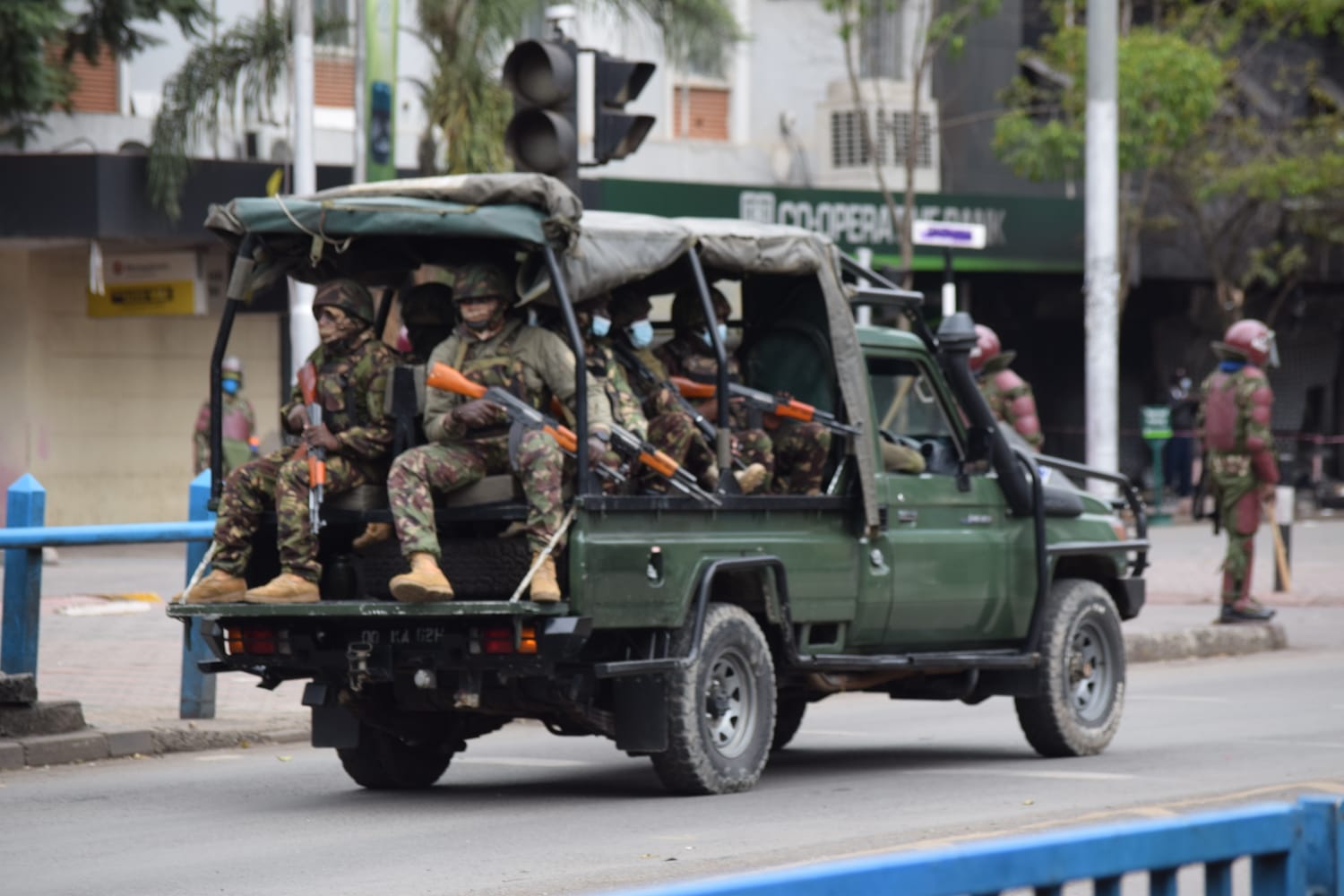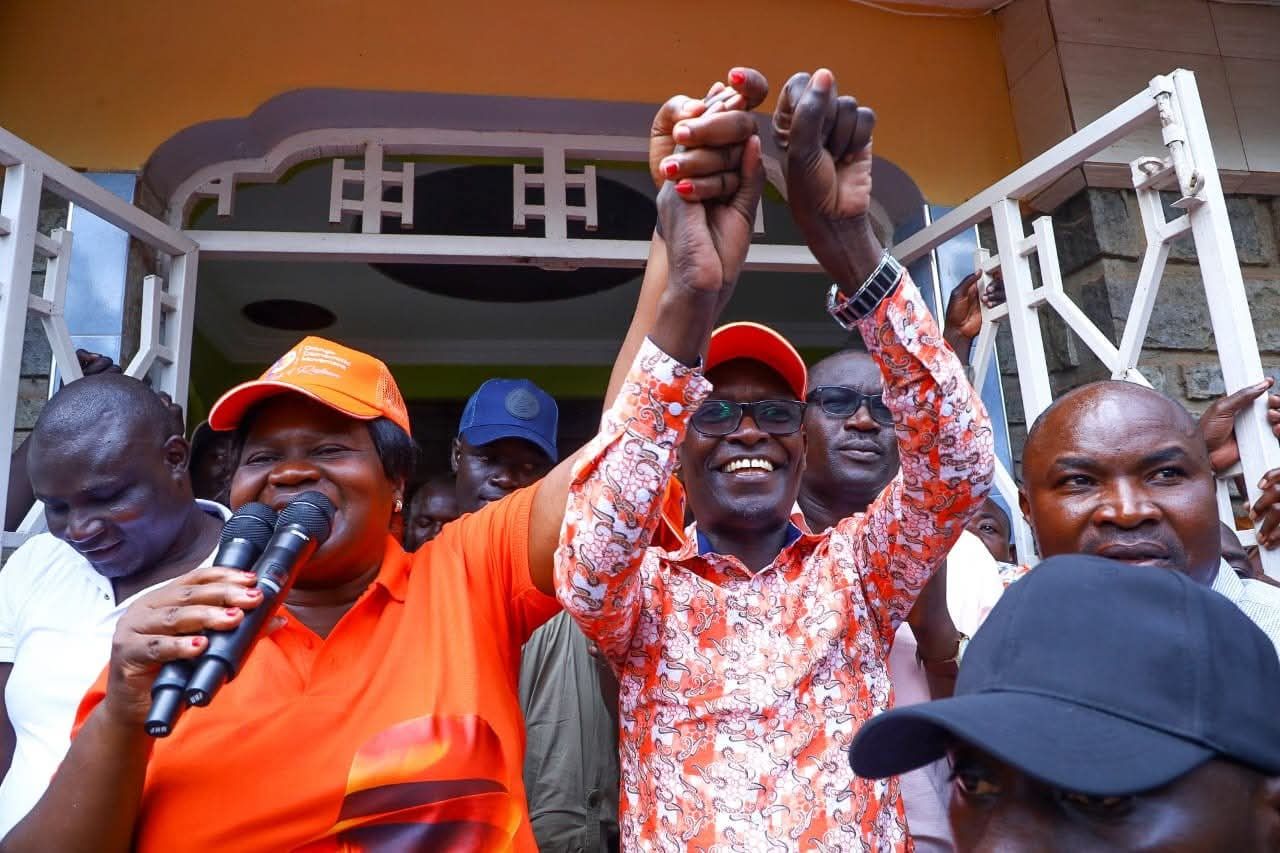Amnesty International calls for accountability, transparency in KDF's role during Gen Z protests

Despite high-level promises from the government to ensure accountability, Amnesty pointed out that there has been little progress in holding those responsible for the deaths during the protests accountable.
Amnesty International Kenya has called on the Kenya Defence Forces (KDF) to submit a detailed report to Parliament regarding their role in the violent protests that rocked the country in 2024.
The human rights organisation is demanding full transparency on the KDF’s actions, deployment, and engagement protocols during the protests, urging the government to restore public trust in its security institutions.
More To Read
- Gen Z protests in Kenya: Key facts (2024-2025)
- Amnesty exposes state-backed harassment network during Kenya’s 2024–2025 Gen Z protests
- Activist Bob Njagi claims Ugandan soldiers took part in Kenya’s 2024 Gen Z crackdown
- Kigame seeks court nod for private prosecutions over 2024–2025 protest abuses
- Rights groups demand repatriation of Kenyan teacher shot dead in Tanzania
- Relief for Saba Saba protesters as Makadara court slashes bail to Sh30,000
The call follows the release of the BBC documentary Blood Parliament, which has now been viewed by over a million people.
In a statement on Tuesday, Amnesty emphasised that both lethal and less-lethal force were used against protesters, resulting in numerous fatalities.
Despite high-level promises from the government to ensure accountability, Amnesty pointed out that there has been little progress in holding those responsible for the deaths during the protests accountable.
“We call on the Kenya Defence Forces to submit a comprehensive report to Parliament detailing their deployment, engagement protocols, and actions during the 2024 protests. This obligation, as outlined under Article 241(3)(b) of the Constitution and Section 31(a) of the Kenya Defence Forces Act, is crucial for restoring public trust in our security institutions,” Amnesty International Kenya stated.
“We demand that both the National Police Service and the Kenya Defence Forces take responsibility and publicly disclose the actions being taken following the findings of the BBC's Blood Parliament documentary, which identified two state security officers suspected of killing Erickson Mutisya, David Chege, and Eric Shieni,” it added.
Almost a year later, no arrests or prosecutions have been made regarding the deaths that occurred within the Parliament premises during the protests.
Amnesty acknowledged an update from the Independent Policing Oversight Authority (IPOA) regarding ongoing investigations into the events of June 2024.
According to Amnesty International’s 2024/25 State of the World’s Human Rights report, Kenya witnessed repeated violations of constitutional rights throughout 2024, including the right to protest, freedom of expression, access to healthcare and housing, and protection from violence.
“For Kenya(2024), last year saw repeated attempts to infringe upon freedoms and human rights provided for in the Constitution of Kenya. These include the right to protest, freedom of expression, access to health, housing, and protection from violence, among others,” it said.
Crackdown on civil liberties
In its latest findings, the organisation reported a sustained crackdown on civil liberties, citing the use of excessive and unnecessary force by the National Police Service during the nationwide protests held that year.
“At least 65 individuals were killed, 89 forcibly disappeared, and thousands arbitrarily arrested. The government's response extended beyond physical spaces to the targeting of online dissent through enforced disappearances, arrests, account suspensions, threats and physical violence. These actions created a climate of fear for those expressing public criticism and dissent,” stated the organisation.
The organisation also raised alarm over the spike in gender-based violence, reporting that 170 women were killed in 2024—a number nearly double that of 2023 and five times higher than in 2016.
It called on the Taskforce on Gender-Based Violence and the Ministry of Gender, Culture, the Arts and Heritage to fast-track comprehensive state interventions to address the crisis.
Additionally, the group opposed the proposed Assembly and Demonstration Bill (2024), warning that it could further restrict the right to peaceful assembly.
It urged Parliament to reject the Bill and called on the National Treasury to consider alternatives to punitive taxation, including curbing wasteful spending and tackling corruption.
“We call on the National Treasury to hear the voices of Kenyans against the introduction of excessive and punitive taxes and find other ways of reducing the debt deficit, including reducing wasteful government expenditure and corruption documented in several reports from the Office of the Auditor General,” it stated.
Amnesty International urged Kenyans to persist in advocating for transparency, responsible leadership, human rights, and the elimination of impunity.
The organisation also called on the government to uphold its duty to respect, protect, and fulfil the rights of all citizens, and to take swift action to reverse the concerning trends observed in 2024.
"The government should respect, protect, and fulfil the human rights of all Kenyans and take immediate steps to reverse the alarming trajectory seen in 2024."
Meanwhile, Kenyan officials have stopped the screening of the BBC Africa Eye documentary. The event was planned to take place at a cinema in a Nairobi restaurant on Monday.
The move to halt the screening has come as pressure grows on the government to hold security officers accountable for unlawful killings and injuries of peaceful protestors. BBC said authorities intervened to block the event at the last minute.
"A screening of BBC Africa Eye's 'Blood Parliament in Kenya' was cancelled due to pressure from the authorities. We are very disappointed not to have been able to share the documentary and panel discussion as planned. In the meantime, audiences can watch the film on BBC Africa's YouTube channel," a BBC spokesperson told the Daily Nation.
Top Stories Today
















































